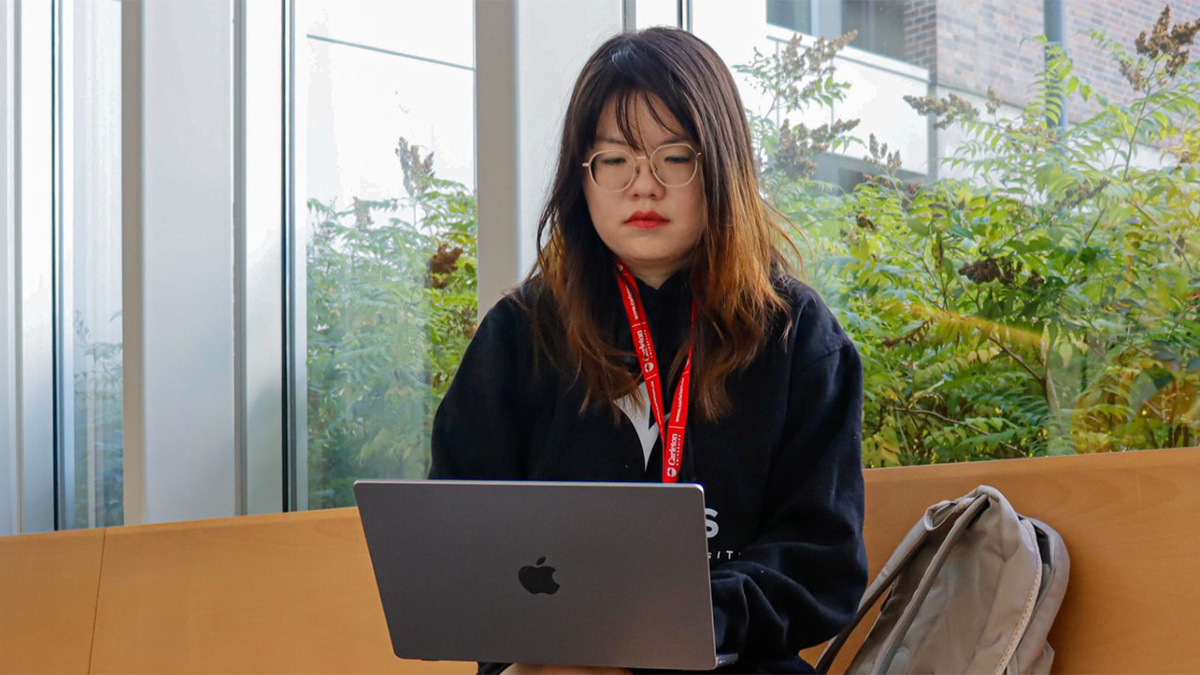UPDATE: Federal Immigration Minister Marc Miller ruled out the impending imposition of a cap on the number of international students in an interview with Global News today. But the minister would not rule out such a limit being imposed in the future.
. . .
Some international students at Carleton University doubt that any federal cap on their numbers will make much of a dent on housing affordability in Canada.
They also warn that the move could prove costly for universities.
Federal Housing, Infrastructure and Communities Minister Sean Fraser raised the idea this past summer when he said the government was considering such a cap among ways to address the housing crisis.
“I think Canadians who are struggling to see themselves in the housing market, see a future for themselves in our community, they deserve to know that we’re looking under every stone for the solutions that exist, both on the supply and demand side of the equation,” Fraser told CTV News.
The idea has been denounced by many including the Carleton University Students’ Association (CUSA).
“It is incredibly saddening to witness such policies being treated and discussed as possible solutions, especially considering international students are among the groups most greatly affected by the current housing crisis in the country,” said CUSA in a recent statement.
CUSA said it had reached out to Fraser and Immigration Minister Marc Miller to discuss housing and affordability policies, but have not said they have received a response.
Universities Canada too has warned that restricting the number of international students will not address the underlying issues of housing affordability. Instead, the organization urged the federal government to expand access to low-cost financing to build housing, broaden eligibility for housing programs through the existing National Housing Strategy and support affordable housing projects in communities across the country.
Mingwei Qin, a fourth-year Carleton University student from China, also questions the idea of a cap.
“The number of new immigrants growing every year is unstoppable unless Canada wants to radically change its face as an immigrant-friendly country,” said Qin. “The government should [think] about how to expand new housing, not starting with international students.”
Isabelle Alexandre, a second-year Carleton student, echoes this idea.
“It would be a crazy measure to put into place. I feel like it would be incredibly unnecessary,” said Alexandre. “Canada is built on immigrants. Canada will always have immigrants come here.”
Some also fear what universities would lose if there were further restrictions on foreign students.
“International students contribute greatly to ensuring a diverse and vibrant community here at Carleton,” said Matthew Wason, digital content and activities coordinator in Carleton’s International Student Services Office.
Factors in the housing crisis
The Canadian Mortgage and Housing Corp. (CMHC) said recently that, “Canada will need an additional 3.5 million units to restore housing affordability.”
Many contributing factors help explain the current affordability crisis.
Nemoy Lewis, a professor of Urban and Regional Planning at Toronto Metropolitan University, told the Don’t Call me Resilient podcast hosts that Canada has allowed too much housing to be bought or developed by for-profit corporations.
Other contributing factors include real estate investment trusts, which effectively treat homes as investment vehicles, restrictive zoning laws and the lack of financial support for vulnerable households.
Brian Doucet, Canada Research Chair in Urban Change and Social Inclusion at the University of Waterloo, says there are many promising initiatives that will help affordability, including anti-renoviction bylaws in B.C. and rent controls in different jurisdictions.
While such initiatives will take time to implement, the Carleton students warn that restricting the flow of international students could hit universities at a critical time.
According to Carleton Admissions, the university has more 4,500 international students from more than 150 countries, who pay considerably higher tuition than Canadian students. The University of Toronto has more than 25,000 international students, according to the University of Toronto website.
At the same time, the proportion of revenue at Ontario universities that comes from governments, particularly the provincial government, has been falling for years.
Federal funding has also dropped. According to Statistics Canada, federal funding for Canadian universities decreased in 2021/2022 compared to the previous year.
For Ontario universities, the proportion of total revenue from “non-federal” sources, which is mostly provincial, dropped from 36 per cent in 2001-02 to 25 per cent in 2021-22, Statistics Canada has reported.
This leaves universities relying more and more on tuition, particularly the higher tuition paid by international students. Average tuition for international students in Canada are highest in Ontario at both the undergraduate ($45,242) and graduate level ($27,149) programs, Statistics Canada reports.
“[If] the government is looking to cut international students, I think they need to consider that universities probably don’t want to lose this financial support,” said Qin.
And the international students are increasingly caught in a spiral of increasing costs for tuition and for rent.
“Rising prices and mortgages […] seem to have somewhat deviated from what many people initially envisioned when they came to Canada,” said Qin.
Mary Rose Sabater, of Immigration, Refugees and Citizenship Canada (IRCC), said the IRCC has an “on-going commitment” to ensure they are making housing accessible and affordable for international students while they are in Canada.
“IRCC acknowledges the pressures that our International Student Program is facing and that housing affordability and availability are challenges for international students,” said Sabater in an email.




